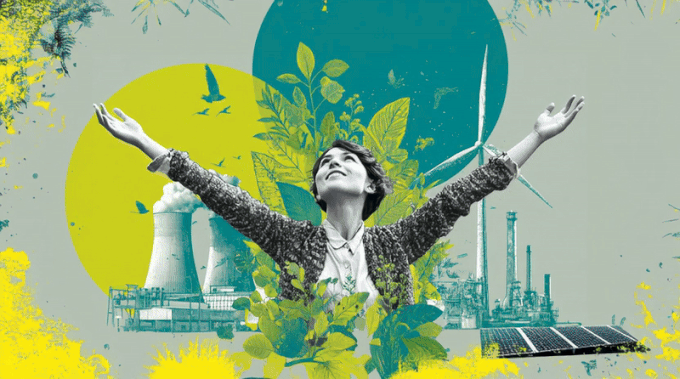Summary: 2022 was marked by many challenges and disruptions, such as Covid-19 and the Russian invasion of Ukraine. In the face of these tragic setbacks, our editor recommends maintaining a balanced perspective by paying attention to good news and the long-term trends.
As another year comes to an end, the editor of Human Progress takes up the customary challenge of summing up the last 12 months in a way that’s both hopeful and realistic. As our readers already know, the Covid-19 pandemic interrupted and, in some cases, partially reversed some of the positive long-term trends that we like to highlight, including the growth in life expectancy, real income appreciation, and absolute poverty reduction. Then came the Russian invasion of Ukraine and the concomitant humanitarian catastrophe. “So much, then, for progress,” a skeptic may be tempted to conclude.
But, as I and other promoters of the idea of human progress never fail to point out, improvement in the human condition is neither linear nor inevitable. Humanity frequently takes two steps forward and one back, often thanks to mindless decisions made by the ruling elite (be they extreme environmentalists in Europe or Russian nationalists). And progress does not mean that everything will work out for everyone, everywhere and always. That would not be progress, but a miracle, as Steven Pinker from Harvard University reminds us. That said, as long as we build more than we destroy, we are getting ahead!
My coauthor Gale Pooley and I exhaustively documented that process in our book, Superabundance. In short, we found that between 1850 and 2018, the personal resource abundance of a U.S. blue-collar worker rose by 5,762 percent. That means that resource abundance in the United States as a whole (i.e., personal resource abundance multiplied by the U.S. population) rose by an astonishing 83,242 percent. It is true that, due to higher inflation and the consequent reduction in real purchasing power, we can afford less today than we could three years ago. But it would take sustained hyperinflation to erode all the gains we have made over the last two centuries. That’s possible, but unlikely.
Our book follows in the footsteps of the great Julian Simon, who first noted that the human brain is the ultimate resource and that, as long as they enjoy relative peace and freedom, people will continue to solve current and future problems. Anyone who wants to bet me that global life expectancy, to give just one example, will be lower in 2032 than in 2022 is welcome to do so. However, given that humanity may soon eliminate deaths from malaria (surely the greatest scourge of our species) and considering the many other medical and technological advances we documented this year, it would be a losing gamble.
Dr. Stephen Davies from the Institute of Economic Affairs in London recently wrote, “we tend to see history as just one political event after another, [though] it’s technology and ideas, not politics, that change our lives the most.” He then asked his readers to consider two sets of dates:
1. 7/4/1776, 7/14/1789, 1914, 1933, 1917, 1215, 1815 and 1066
2. 7/5/1687, 3/9/1776, 11/24/1859, 10/1/1908, 2/28/1953 and 4/26/1956
The first set of dates pertains to political events: the American Declaration of Independence, the fall of the Bastille, the start of World War I, Hitler’s coming to power in Germany, the Russian Revolution, the drafting of the Magna Carta, the Battle of Waterloo, and the Battle of Hastings.
The second set of dates relates to major intellectual and technical breakthroughs: the publications of Isaac Newton’s Philosophiae Naturalis Principia Mathematica, Adam Smith’s The Wealth of Nations and Charles Darwin’s On the Origin of Species by Means of Natural Selection; the start of the production of the first Model T Ford; the date when Francis Crick and James Watson announced their discovery of the structure of DNA; and the sailing of the first container ship from New Jersey to Texas.
Political events matter, of course, especially to those on the receiving end of political upheavals. But our daily lives are much more impacted by Alexander Fleming than Robespierre. A hundred years from now, I suspect, we will look back at 2022 not as the year of inflation and war, but as the year in which humanity started to crack the fusion conundrum, taking another step toward abundant clean energy and widespread human flourishing.
The key to psychic equipoise in 2023, I submit to you, is not to ignore political happenings, but to moderate one’s information diet with a daily dose of positive news. We should always remember that for every venal politician and rent-seeking “businessman,” there are thousands of scientists, engineers, tinkerers, and other innovators, who are working long hours to make the world a better place.
So, please sign up for our weekly newsletter and be on the lookout for our completely redesigned website that you will be able to visit early next year.
— Marian





